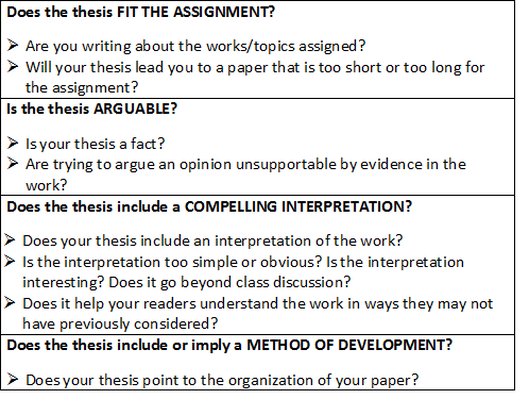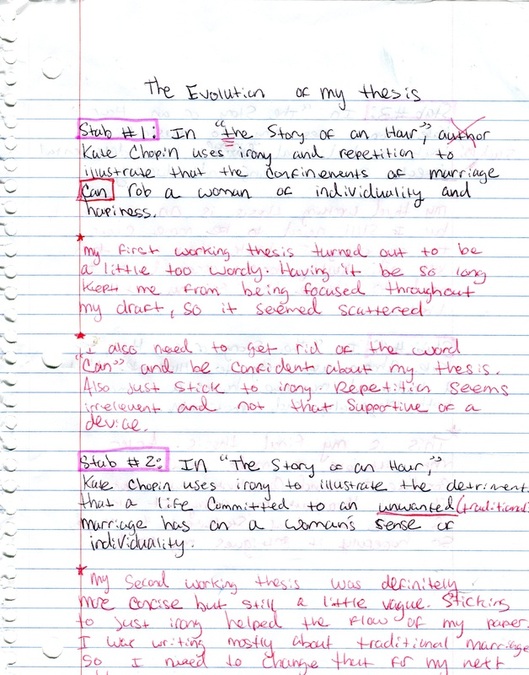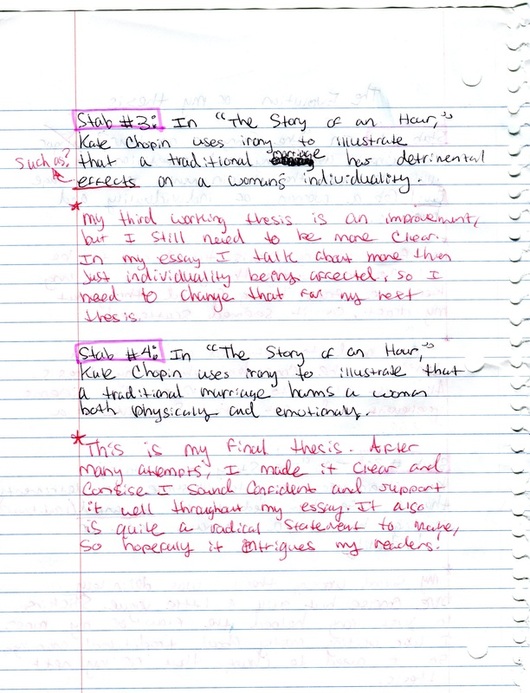Thesis
In your essay, your thesis will take on the form of an arguable assertion. Your thesis should clearly express the central idea of your essay. You must articulate thesis statements specifically and lucidly so that your reader can understand your essay’s main point that you will support with analysis of textual evidence in the essay’s body.
After reviewing your professor’s assignment, reviewing the literary text you want to write about, and/or focusing on key issues or methods you want to write about, you can often arrive at a working thesis. A working thesis is your first stab at formulating the central idea you want to argue in your essay What constitutes a good thesis?
|
Work in Progress“Occasionally, I’m unable to develop a thesis statement until I have written the rough draft of my essay’s body. The points I’m attempting to argue may be stated more clearly in this section of the paper and may open the door to new thoughts and ideas for generating a thesis statement. Sometimes I haven’t arrived at a true thesis until I have written the conclusion of my essay! Don’t be alarmed if this happens. Remember: a thesis is ALWAYS a work in progress!” – Mary
|
Later in the STEPS process, you will share the draft of your essay with peers and
with your instructor. They will provide helpful feedback about the effectiveness of your
thesis statement, and you will likely fine-tune it during the Revising step. Your final
thesis may be quite different than your initial draft. Below are typical examples of how
your thesis statement may evolve during the STEPS process.
with your instructor. They will provide helpful feedback about the effectiveness of your
thesis statement, and you will likely fine-tune it during the Revising step. Your final
thesis may be quite different than your initial draft. Below are typical examples of how
your thesis statement may evolve during the STEPS process.
This is the evolution of Carli’s thesis
This is the evolution of Mary’s Thesis




